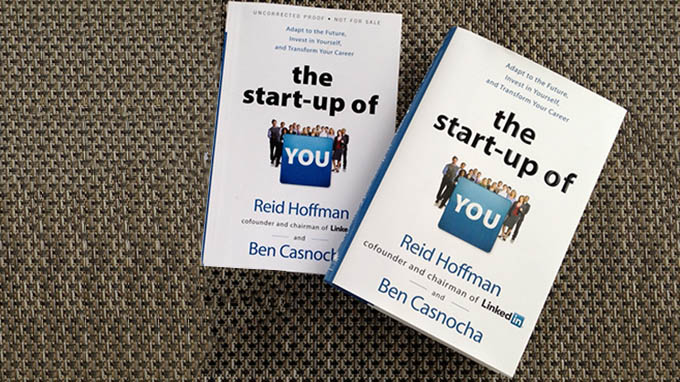The Startup of You is all about mapping the strategies and tactics that make startups – in theory – successful, and apply them to careers. The central tenets revolve around taking moderate amounts of risk, having backup plans, and not being afraid of hard work. Put together, they combine to form a playbook that aspires to some form of universal success as defined by silicon valley.
For the uninitiated, this book contains informative and inspirational advice for folks early in their careers. Its author, Reid Hoffman, is a former CEO of a successful startup (now public company) and current venture capitalist with a long story in the valley. He is understandably bullish on the idea of leveraging principles of entrepreneurship in many areas of life, and he draws his examples from a rich well of famous tech luminaries. The stories are common lore for those who work or follow technology, but serve as a nice refresher.
Applying the supposed tenets of entrepreneurship as career advice is at best tenuous. At times, the points Hoffman make start sounding more like a handful of risky tactics that happened to work for a few startups, forcefully applied as strategies to careers in technology. That’s not to say that the advice is bad, but just a bit shallow for my taste and overly generic.
One aspect that annoyed me going through this book was Hoffman’s tendencies to plug his company. LinkedIn is a social network for professionals and so there is some overlap, but calling out specific features – some of which are, conveniently, only available to paid subscribers of the site – feels tacky. If nothing else, it cheapens the tone of the book.
The Startup of You doesn’t do a bad job of guiding one’s career; it covers many of the philosophies and tactics that reflect the realities of today’s job market, from the frequency of switching jobs to the importance of professional networking and connections across industries and locales. It ties into Silicon Valley where it makes sense, and while the connections feel contrived at times, the book does a decent job of picking out inspiring stories and presenting next steps to the reader.



